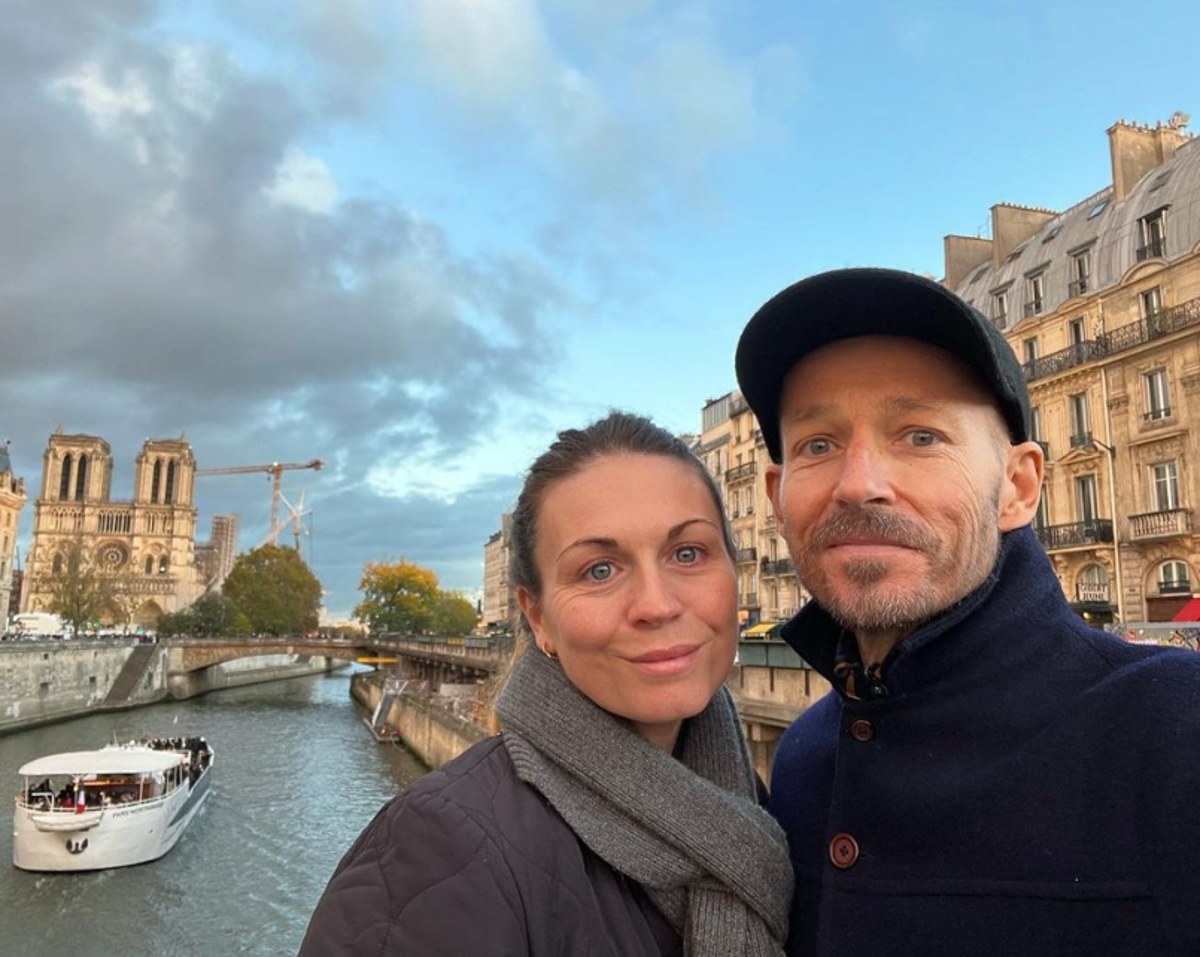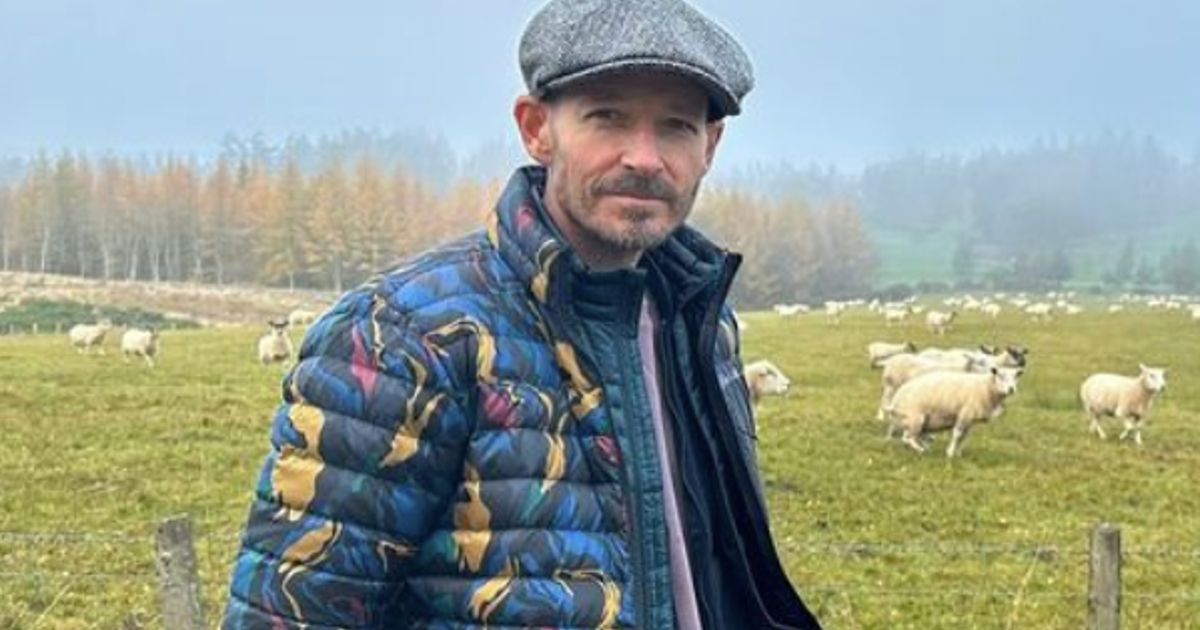Learning About Lung Cancer
- TV host Jonnie Irwin, 49, has revealed he was fired from being the host of the house-hunting show A Place in the Sun. He claims he was let go from the show because of his cancer diagnosis.
- He recently shared that he's battling lung cancer that has spread to his brain. His first warning sign of the disease came in 2020 when his vision went blurry while driving.
As a father to three young children, Irwin is determined to make the most of whatever time he has left with his family. - Lung cancer is the second most common type of cancer and it can develop in both smokers and non-smokers, but people who smoke cigarettes are 15 to 30 times more likely to get lung cancer or die from lung cancer than people who don't smoke.
- There has been lots of progress within the world of lung cancer treatment specifically when it comes to immunotherapy. One of our experts says "it's really changed the face of lung cancer, just like targeted therapies."
The 49-year-old dad of three and loving husband spoke about the sad news this week to The Sun, explaining that Freeform Productions removed him as the host of the Channel 4 house-hunting show, a move which left him devastated. But an outpouring of support from fans across the internet has brought some light to his situation.
Read More
As a result of his job loss, Irwin chose not to tell others about his cancer diagnosis until two years later, out of fear he would lose more work.
Recounting what was said before losing the job, Irwin explained, “When I said I can get you doctor notes and assurances from my oncologist that I am fit to work, I was told, verbatim, 'Oh, you really don't want to go down that route, do you?' They said, 'We don't think we can get the insurance,' not 'We can't get the insurance,' but, 'We don't think…' That broke my heart and affected my mental health."
Irwin was saddened that just two weeks after he stopped working for the production company, someone else filled his place.
Meanwhile, Freeform Productions and Channel 4 told The Sun in a statement that, “No stone was left unturned in trying to enable Jonnie to continue his international filming with us during Covid but the production company were unable to secure adequate insurance cover for him.”

And in a recent Instagram post, revealing Irwin had gone on vacation with his wife in the wake of his job loss and his cancer diagnosis, the TV star wrote, “Been a hell of a week. I'm bowled over by the lovely messages thank you all so much. As touching as it's been, I've also found it quite surreal – almost like we're talking about some else.”
“By my side throughout this is my wife so thought I'd take us to Paris for the weekend,” he continued. “We could only do this with the help from my family, in particular my amazing sisters who dropped everything and have driven up to the Toon to look after the boy band. We are having an amazing time. Thanks so much. xxx.”
Days prior to that, Irwin shared another post from what appeared to be another vacation spot.
“Overwhelmed by your kind messages, not had the chance to read them all yet but I assure you I will. Yesterday I needed some headspace so I escaped to the country with my brother in law and his dog. It was a tonic. Xx,” he captioned the post.
Jonnie Irwin’s Diagnosis
Irwin’s first warning sign came when his vision went blurry while driving in August 2020 during a filming trip.
"Within a week of flying back from filming, I was being given six months to live," he previously said. "I had to go home and tell my wife, who was looking after our babies, that she was on her own pretty much. That was devastating. All I could do was apologize to her. I felt so responsible."
His wife Jessica is 40 years old, and the couple shares their 3-year-old son Rex and 2-year-old twins Rafa and Cormac. And though drugs have been prolonging his life, Irwin's future remains uncertain. He's trying his best to spend precious time with his family and not let his disease ruin whatever time he has with them.
"I don't know how long I have left, but I try to stay positive and my attitude is that I'm living with cancer, not dying from it," he said. "I set little markers things I want to be around for. I got into the habit of saying: 'Don't plan ahead because I might not be well enough.' But now I want to make plans.
"I want to make memories and capture these moments with my family because the reality is, my boys are going to grow up not knowing their dad and that breaks my heart."
Regardless of the harrowing path ahead, Irwin is determined to put up a fight.
"One day, this is going to catch up with me," he said. "But I'm doing everything I can to hold that day off for as long as possible. I owe that to Jess and our boys. Some people in my position have bucket lists, but I just want us to do as much as we can as a family."
Understanding Lung Cancer
Lung cancer is the second most common type of cancer. Diagnosis and treatment of the disease can be tricky since symptoms often don't appear until the cancer has spread.
What Happens When You've Been Newly Diagnosed With Lung Cancer
An initial symptom, for example, could be as serious as a seizure if the lung cancer has already spread to the brain. But other symptoms can include increased coughing, chest pain, unexplained weight loss, shortness of breath, wheezing, losing your voice or persistent infections like bronchitis or pneumonia.
The two main types of lung cancer are non-small cell, which makes up 85 percent of cases, and small-cell. These types act differently and, accordingly, require different types of treatment.
Dr. Patrick Forde, a thoracic oncologist at Johns Hopkins Medicine, tells SurvivorNet about how distinguishing between the two types and their subtypes can be very beneficial.
Immunotherapy and Targeted Therapy for Lung Cancer: What Is It?
"Within that non-small cell category, there's a subtype called non-squamous adenocarcinoma, and that's the group of patients for whom genetic testing is very important on the tumor," he explains. "Genetic testing is looking for mutations in the DNA, in the tumor, which are not present in your normal DNA."
Declining smoking rates have lead to an improved outlook for lung cancer. This is because cigarette smoking is the number one risk factor for the disease and people who smoke cigarettes are 15 to 30 times more likely to get lung cancer or die from the disease than people who don't smoke. In fact, the Centers for Disease Control & Prevention states that cigarette smoking is linked to about 80 to 90 percent of lung cancer deaths.
It's important to remember, however, that even people who've never smoked before can still get lung cancer. The CDC reports that, in the United States, about 10 to 20 percent of lung cancers, or 20,000 to 40,000 lung cancers each year, happen in people who've never smoked.
"Some lung cancers are from unknown exposure to air pollution, radon, or asbestos," Dr. Raja Flores, system chair of thoracic surgery at Mount Sinai previously told SurvivorNet in a previous interview. "We also see more never-smokers with lung cancer who have a family history of it."
RELATED: Clinical Trials for Lung Cancer
Despite the fact that lung cancer is the leading cause of cancer deaths for men and women in the United States, there has been lots of progress within the world of lung cancer treatment specifically when it comes to immunotherapy.
"Immunotherapy is here to stay," Dr. Brendon Stiles, chief of thoracic surgery and surgical oncology at Montefiore Health System, told SurvivorNet. "And it's really changed the face of lung cancer, just like targeted therapies."
Getting even more specific, checkpoint inhibitors and our ability to genetically test for targeted medications have made a huge difference. Checkpoint inhibitors are a class of immunotherapy drugs that specifically target proteins found either on immune or cancer cells to prevent their binding together. In other words, these drugs don't kill cancer cells directly, but instead stimulate the immune system to attack cancer cells while hopefully not affecting other surrounding healthy cells.
"It's amazing to me now that you can have Stage IV lung cancer and actually not even need chemotherapy," Dr. Stiles said. "If you have high expression of a protein that we know is targeted by immunotherapy, you may just get immunotherapy alone."
There are also many targeted therapies out there for patients to consider. No matter what, it's important that people with lung cancer advocate for themselves and ask if targeted therapies and immunotherapies may be right for them.
Facing Cancer as a Parent
Battling cancer as a parent is a huge challenge. And thoughts about leaving your children may be harder than the actual diagnosis itself.
Telling Your Kids You Have Cancer 'When it Comes to Your Kids, You Want to Protect Them'
In a previous interview with SurvivorNet, breast cancer survivor Gina de Givenchy shared her experience of telling her 12-year-old daughter she had cancer.
"I felt it was important to mask it because I really wanted her to know that I was going to be OK," she said. "I didn't want her to see me weak and sickly… when it comes to your kids, I think you always want to sort of protect them."
Thinking of your children when you're facing cancer can be incredibly daunting, but having little ones can also give cancer patients another huge reason to fight for their lives.
Jovannie Lorenzo knows this to be true. She was just 32 years old when she was diagnosed with colon cancer. In a conversation with SurvivorNet, she explains the immense fear she felt during her cancer journey. Not just because of the cancer itself, but also because of her three kids. As a single parent, Lorenzo knew she needed to do everything she could to be around to raise them.
Facing a Cancer Diagnosis as a Single Parent: "I Knew I Had to Fight for My Life"
"I knew that I had to do everything possible to be here for my children," Lorenzo says. "They are my saving grace. They are the reason I wake up every morning. They are the reason why I fight every single day and I make a choice to be positive, to be happy, and to move forward."
Contributing: SurvivorNet Staff
Learn more about SurvivorNet's rigorous medical review process.


